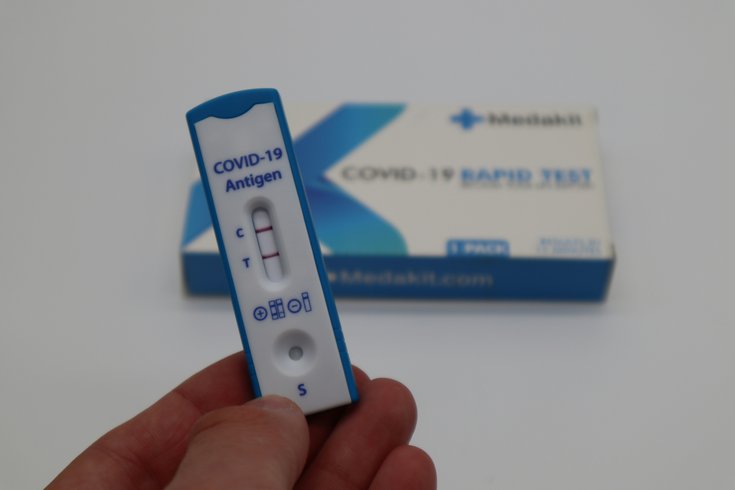
October 11, 2024
 Medakit Ltd/Unsplash
Medakit Ltd/Unsplash
People who contracted the first strain of COVID-19 in 2020 had an increased risk of heart attack, stroke and death for up to three years after being infected, a new study suggests.
People who contracted COVID-19 during the pandemic's first wave had an increased risk of heart attack, stroke and death for up to three years after becoming sick, new research shows.
People who were infected with the original coronavirus strain in 2020 were twice as likely to suffer these conditions or die than those who never had COVID-19, the study found. People who had "severe" COVID-19 cases had nearly four times the risk. Previous research has established links between COVID and cardiovascular issues, but this study was the first to suggest that the heightened risks could last up to three years after infection.
In some cases, researchers found the risk of heart attack, stroke or death after COVID was even higher than having a known cardiovascular risk factor, like type 2 diabetes.
"This study sheds new light on the potential long-term cardiovascular effects of COVID-19, a still-looming public health threat," said David Goff, director for the Division of Cardiovascular Sciences at the National Institutes of Health's National Heart, Lung, and Blood Institute, which largely funded the study. "These results, especially if confirmed by longer term follow-up, support efforts to identify effective heart disease prevention strategies for patients who've had severe COVID-19. But more studies are needed to demonstrate effectiveness."
The study also was the first to demonstrate that blood type may play a role in the increased risk of heart attack and stroke in patients with severe COVID. Researchers found that COVID hospitalization more than doubled the risk of heart attack or stroke in patients with A, B or AB blood types, but not in patients with O types — which were associated with a lower risk of severe COVID.
The study used data from 10,000 people ages 40-69 enrolled in the UK Biobank database. Of that group, 8,000 had tested positive for COVID and 2,000 were hospitalized with severe COVID between Feb. 1, 2020, and Dec. 31, 2020. None of the patients were vaccinated against COVID, because vaccines were not yet available. These groups were compared to nearly 218,000 people who did not have COVID. Researchers tracked them from their COVID diagnoses until they either had heart attacks, strokes or died, up to nearly three years.
The study's findings mainly apply to people infected early in the pandemic, study leader Hooman Allayee said in a news release. It's not yet clear whether the cardiovascular risks are as persistent in people who have had COVID from 2021 to the present. The study also has some limitations, such as the fact that the UK Biobank is mostly white, so further research is needed to determine whether the results differ in a population that is more racially and ethnically diverse. Additionally, future studies are needed to determine whether vaccines influence cardiovascular risk.
"Given that more than 1 billion people worldwide have already experienced COVID-19 infection, the implications for global heart health are significant," said Allayee, who is a professor of population and public health sciences at the University of Southern California. "The question now is whether or not severe COVID-19 should be considered another risk factor for cardiovascular disease, much like type 2 diabetes or peripheral artery disease, where treatment focused on cardiovascular disease prevention may be valuable."
Follow Franki & PhillyVoice on Twitter: @wordsbyfranki
| @thePhillyVoice
Like us on Facebook: PhillyVoice
Have a news tip? Let us know.